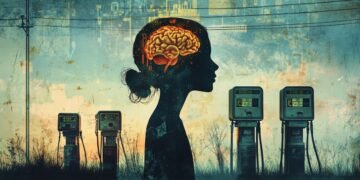In the intricate landscape of mental health, depression stands as a towering challenge, affecting millions worldwide. Traditional pharmacological interventions and psychotherapy have long been the cornerstone of treatment, offering hope and relief to many. However, the quest for holistic well-being has led individuals and healthcare professionals alike to explore complementary approaches, with natural therapies emerging as promising adjuncts in the management of depressive symptoms. This article delves into the realm of natural therapies, examining how they can harmonize with conventional treatments to foster a more comprehensive recovery journey for those battling depression.
Understanding Depression: A Multifaceted Disorder
Depression is a complex mental health condition characterized by persistent sadness, loss of interest in activities, changes in appetite and sleep patterns, reduced energy, feelings of guilt or worthlessness, and sometimes, suicidal thoughts. Its causes are multifaceted, encompassing genetic predispositions, environmental factors, biochemical imbalances, and psychological vulnerabilities. Given this complexity, a one-size-fits-all approach to treatment is impractical. Instead, a personalized, integrated care plan often yields the best outcomes.
The Role of Conventional Treatments
Pharmacological therapies, particularly antidepressants, play a crucial role in regulating neurotransmitters like serotonin and norepinephrine, which are often implicated in depression. Psychotherapy, including cognitive-behavioral therapy (CBT) and interpersonal therapy, helps individuals identify and challenge negative thought patterns, improve coping skills, and strengthen interpersonal relationships. While effective, these treatments may not fully address all aspects of depression for everyone, prompting the exploration of adjunctive therapies.
Natural Therapies: A Complementary Approach
Natural therapies offer a gentle yet potent complement to conventional treatments, targeting physical, emotional, and spiritual well-being. They encompass a wide array of practices, including nutrition, herbal medicine, mind-body techniques, and energy healing. Here’s an in-depth look at some of the most promising natural therapies for depression:
**1. Nutritional Therapy
Nutrition plays a pivotal role in brain health. Deficiencies in essential nutrients like omega-3 fatty acids, vitamin D, B vitamins (especially B6, B12, and folate), and magnesium have been linked to depression. Incorporating foods rich in these nutrients, such as fatty fish, leafy greens, nuts, seeds, and fortified foods, can support mood regulation. Additionally, following an anti-inflammatory diet, which emphasizes whole foods and minimizes processed items, can reduce inflammation, a known contributor to depressive symptoms.
Key Nutrients:
- Omega-3 Fatty Acids: Found in fish, flaxseeds, chia seeds, and walnuts.
- Vitamin D: Sources include fatty fish, fortified foods, and sunlight exposure.
- B Vitamins: Rich in leafy greens, nuts, seeds, legumes, and animal products.
- Magnesium: Found in dark chocolate, nuts, seeds, and leafy greens.
**2. Herbal Medicine
Herbal remedies have been used for centuries to treat various ailments, including depression. Some herbs, like St. John’s Wort (Hypericum perforatum), have shown promise in alleviating mild to moderate depressive symptoms. Its active compounds are thought to inhibit the reuptake of serotonin, dopamine, and norepinephrine, similar to certain antidepressants. However, it’s crucial to consult with a healthcare provider before starting herbal treatment, as interactions with other medications and potential side effects can occur.
Other Herbs to Consider:
- Ashwagandha (Withania somnifera): Known for its stress-reducing properties.
- Lavender (Lavandula angustifolia): Calming effects may aid in anxiety relief.
- Lemon Balm (Melissa officinalis): Supports mood regulation and sleep.
**3. Mind-Body Techniques
Mind-body practices, such as yoga, meditation, and tai chi, integrate physical movement with mental focus, promoting relaxation, stress reduction, and improved self-awareness. Yoga, in particular, combines stretching, breathing exercises, and meditation, which together can enhance neuroplasticity, reduce inflammation, and regulate stress hormones like cortisol. Meditation practices, like mindfulness meditation, help individuals stay grounded in the present moment, reducing rumination—a common pitfall in depression.
Benefits of Mind-Body Techniques:
- Stress Reduction: Lower cortisol levels contribute to better mood regulation.
- Neuroplasticity: Enhanced brain adaptability supports emotional resilience.
- Self-Awareness: Greater understanding of one’s thoughts and emotions fosters healthier coping strategies.
**4. Acupuncture and Acupressure
Based on ancient Chinese medicine principles, acupuncture involves inserting thin needles into specific points on the body to balance energy flow (qi). Acupressure, a non-invasive variant, applies pressure to these same points using fingers or tools. Both practices have been shown to alleviate depression by reducing stress, improving sleep quality, and enhancing overall well-being. Their mechanisms may involve stimulating the release of endorphins and other mood-regulating neurotransmitters.
Therapeutic Effects:
- Endorphin Release: Natural mood lifters.
- Stress Reduction: Balancing the nervous system.
- Sleep Improvement: Enhancing sleep quality and duration.
**5. Light Therapy
Seasonal affective disorder (SAD), a type of depression related to changes in seasonal light patterns, responds well to light therapy. By exposing individuals to bright, artificial light, typically in the morning, light therapy can regulate the production of melatonin and serotonin, mitigating SAD symptoms. Even those with non-seasonal depression may benefit from increased exposure to natural light, as it boosts mood and energy levels.
Application Tips:
- Timing: Morning exposure is most effective.
- Duration: Typically 30-60 minutes daily.
- Intensity: 10,000 lux or higher for therapeutic benefits.
Integrating Natural Therapies into Treatment Plans
When considering natural therapies as adjunct treatments for depression, it’s essential to adopt a collaborative approach with healthcare providers. Here are some guidelines for safe and effective integration:
- Consultation: Always discuss potential therapies with a mental health professional or primary care physician.
- Personalization: Tailor therapies to individual needs, considering factors like medical history, current medications, and personal preferences.
- Monitoring: Regularly assess progress and adjust therapies as needed.
- Mindfulness: Practice mindfulness in choosing therapies, avoiding overcommitment and ensuring they fit into daily routines without causing undue stress.
Conclusion: A Pathway to Holistic Recovery
Depression is a multifaceted disorder requiring a multifaceted approach to treatment. While conventional therapies remain the backbone of care, natural therapies offer a valuable adjunct, fostering a holistic recovery journey. By addressing nutritional deficiencies, harnessing the power of herbs, engaging in mind-body practices, exploring acupuncture and light therapy, and integrating these approaches thoughtfully, individuals can enhance their resilience, improve mood, and reclaim a sense of well-being. Remember, the path to recovery is unique for everyone; with patience, self-compassion, and a willingness to explore, a brighter future awaits.

























![[Cultivating Independence] The Rise of Domestic Lithium-Ion Battery Supply Chains in the U.S.](https://evergreenvitality.com/wp-content/uploads/2024/12/ev-battery-robots-factory-istock-1456466947-360x180.jpg)













![[Cultivating Independence] The Rise of Domestic Lithium-Ion Battery Supply Chains in the U.S.](https://evergreenvitality.com/wp-content/uploads/2024/12/ev-battery-robots-factory-istock-1456466947-120x86.jpg)


